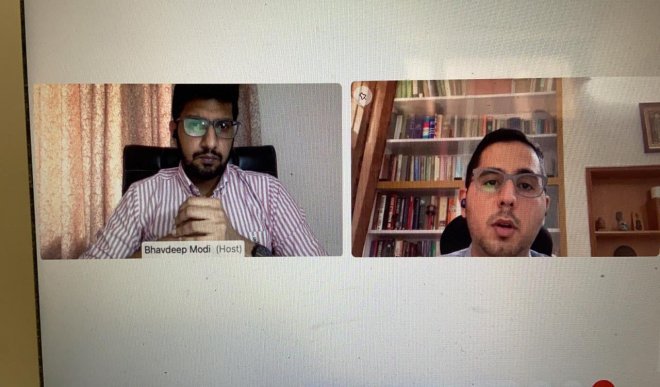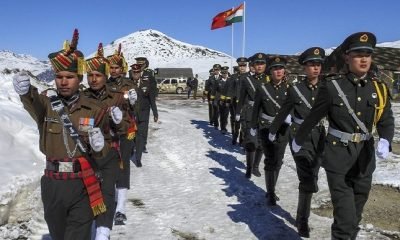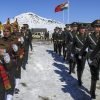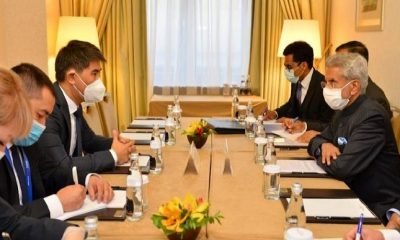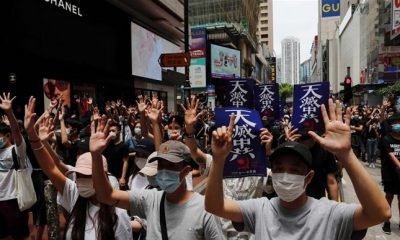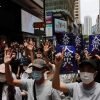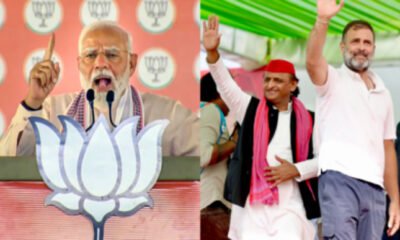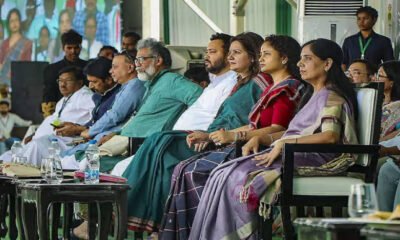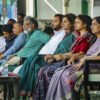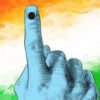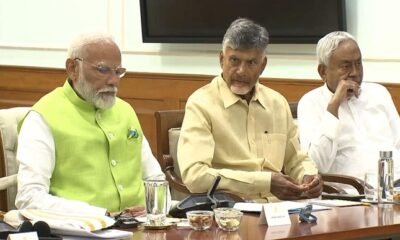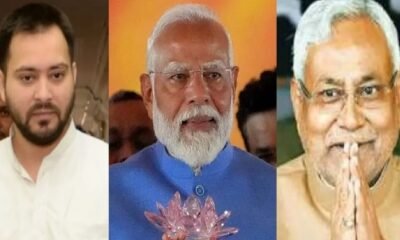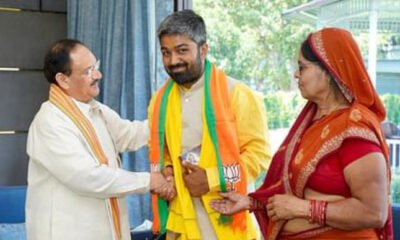Politics
RED LANTERN ANALYTICA: INTERVIEW WITH AADIL BRAR ON “CHANGES IN CCP AND ITS POLICIES AFTER XI’S ASCENT TO POWER”
New Delhi. As China continues with its revisionist approach across the globe and envisions a China-led World Order, the role of Xi Jinping in shaping the CCP’s policies has been at the forefront of Beijing’s approach, both domestically and externally.
To provoke thought on this issue, Red Lantern Analytica, on 24th June 2021, organized a one-on-one interview on the topic “Changes in CCP and Its Policies After Xi’s Ascent to Power” with Mr. Aadil Brar (Columnist, Print India and Former Journalist & China Editor, BBC). The interview was moderated by Mr. Bhavdeep Modi (Project Manager, Red Lantern Analytica).
Mr. Modi opened the discussion by giving a brief account of the topic at hand and introduced Mr. Brar.
Tackling the question on the changes that Xi Jinping has brought to the CCP, Mr. Brar pointed out three major changes- Xi Jinping maneuvering himself to remain in power indefinitely; using the party history to elevate his own position to bring it at par or even higher with Mao Zedong, and flipping his father’s legacy by rebranding projects like the BRI.
Discussing the future of the CCP considering questions about a possible power struggle in CCP, Mr. Brar remarked that Xi does not have substantial opposition in China against him, despite a little opposition that is there.
Upon being asked that whether China is on the road to establishing itself as a global hegemon by taking aggressive measures such as debt-trap diplomacy, maneuvers in the South China Sea, and rising tensions with the US, Mr. Brar pointed out the standards that China wants to set. Accepting that it has made overtures in critical technologies and invested in Africa, Mr. Brar said that it will take China time to replace the US hard power.
Given China’s use of diplomacy, Mr. Brar was asked about the spread of Chinese culture and soft power to the countries it invests in. Mr. Brar stated that China has been only able to spread its cultural influence in only some select regions (for example, Latin America and Africa), but has failed to do so in Europe.
Talking about the future of Hong Kong, Mr. Brar opined that it seems to be a lost cause since China has taken control of Hong Kong brutally, citing the example of the recent arrests of the people from Apple Daily. On whether Taiwan will be attacked by China in the future, Mr. Brar believed China would not do so and instead focus on intimidating Taiwan with its hard power and keep the threshold below war to meddle in its internal affairs.
Mr. Modi then asked Mr. Brar that how does China exerts control in international organizations (for example UNHRC and WHO) while being in complete contravention of the international laws. To this, Mr. Brar replied that the United Nations is somewhat corrupt, which allows China to deploy large sums of money and its diplomats to it and evade liability.
read more : How to Earn from Mistyinfo.com Blogging ?
On the issue of the lab-leak theory gaining credibility with regards to the Covid-19 pandemic, Mr. Brar remarked that given the fact that many virologists have backtracked their previous statements, there needs to be an independent investigation into the origins of the coronavirus and that it is the virologists who need to take charge of this.
Mr. Brar further shed light on the question of Chinese propaganda machinery under Xi Jinping. He said that the Chinese are now spreading propaganda in different languages like French and German, apart from existing propaganda literature in Chinese and English. He also noted that Xi, despite wanting to create a lovable image for China, will not shed its wolf warrior diplomacy that easily and that the propaganda will intensify.
On the future of India-China relations in the backdrop of the Galwan clash, Mr. Brar opined that both sides will not give up on their claims. Given that China is the confrontational side, both countries will have to make do with a peaceful stalemate in the future.
Talking about India’s place in the great power competition, Mr. Brar explained that two schools of thought exist in this regard- one that calls for closer relations with the US, while the other one disagrees. But, in his own opinion, Mr. Brar felt that it would be wise for India to follow a dual strategy that involves hedging.
Mr. Modi lastly questioned Mr. Brar on whether China under Xi Jinping is punching above its weight, to which Mr. Brar replied that China is doing things ahead of its time but lacks the hard power like the US to make an actual difference.
The discussion was then followed by a Q&A Session, where Mr. Brar answered questions on various issues like China’s role in post-US withdrawal Afghanistan, political vulnerabilities of Xi Jinping, and the role of private players like Alibaba and Tencent in China.
The interview concluded with Mr. Bhavdeep Modi delivering a vote of thanks to Mr. Aadil Brar for making the event a huge success.


